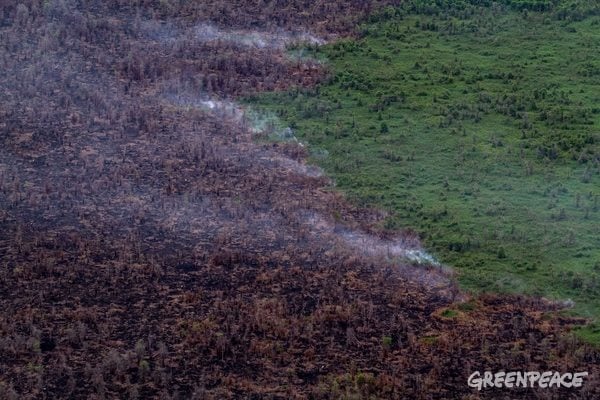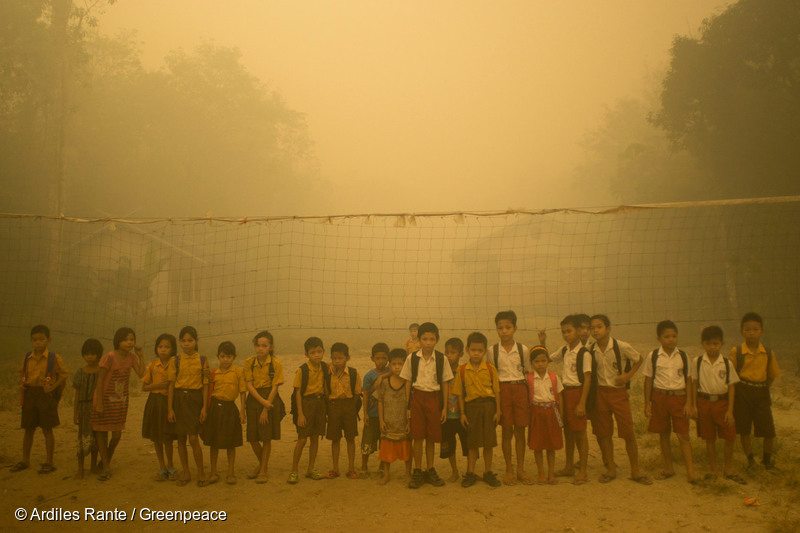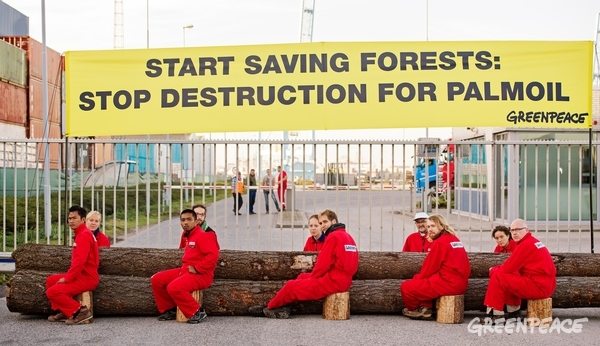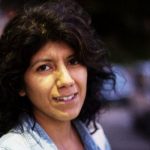The blockade coincided with a new report,”A Deadly Trade-Off,” which details how IOI and its third-party suppliers are linked to human rights abuses and dire environmental problems.
Many hoped the company would accept responsibility for its own failures and take action to fix these problems. Instead, IOI released a statement in response to Greenpeace that deflected blame and passed the buck to the broader palm oil industry.
Below is a blog authored by Adi Prabowo, an activist who traveled from Indonesia to Rotterdam to participate in the blockade. He shares his perspective on IOI’s inaction to protect forests and peatlands in Indonesia.
Join Adi in telling IOI to clean up its act and protect rainforests now!
This morning, while most of the Netherlands was still asleep, my colleague Nilus and I — along with dozens of Greenpeace activists — slipped into Rotterdam’s port facilities. The temperature is just 8 degrees Celsius, my first time ever being this cold.
Our mission must not fail: we are blockading the entry of dirty palm oil to IOI’s refineries. IOI is one of the largest palm oil companies in the world.

IOI Palm Oil Company Blockade in Rotterdam Harbor.
Thousands of kilometers away from Rotterdam, in our hometown in West Kalimantan, Indonesia, forest fires occur every year. Fire has destroyed the peat forests and brought orangutans closer to extinction. IOI opens up palm oil plantations by drying out the peat, which makes it very flammable, leading to haze-making infernos.
Last year, peat fires created huge amounts of pollution — 43 million Indonesian people were exposed to smoke, including both Nilus and myself. I read a recent study from Harvard and Columbia universities that estimated there were more than 100,000 premature deaths across South East Asia in 2015 due to smoke pollution from the fires.
More than 91,000 of those deaths were in Indonesia.
I have known Nilus for several years. He has two children who live in Ketapang, where IOI has damaged the peat, leading to enormous fires. Nilus and his family have been breathing in peat smoke for years.
I came to Rotterdam to take action — to block this palm oil from entering Europe. The world must know the human cost contained in the products they consume every day. IOI’s palm oil is dirty and damaged. IOI must stop destroying Indonesia’s peat forests.
Together, Nilus and I have joined a fire-fighting team formed by Greenpeace Indonesia. The team is composed of 20 volunteers from several regions across my country. We are not only trained in how to extinguish fires, but more importantly, trained in how to prevent fires. We do this because we want to end this era of fires and haze in Indonesia. Extinguishing fires is hard work, but it is important to protect the forests and peatlands. More importantly, palm oil companies need to make sure they do not create the conditions that allow fires to start so easily.
Millions of people should not have their health damaged by smoke and fires just because plantation companies such as IOI destroy forests for their own profit.
Today we showed the world who IOI really is and the threat they are to my country’s forests and my people’s health. But beating these fires is not over. Now, Nilus and I return to Indonesia to continue to protect our forests from companies like IOI.
This article was originally published by Greenpeace International.





